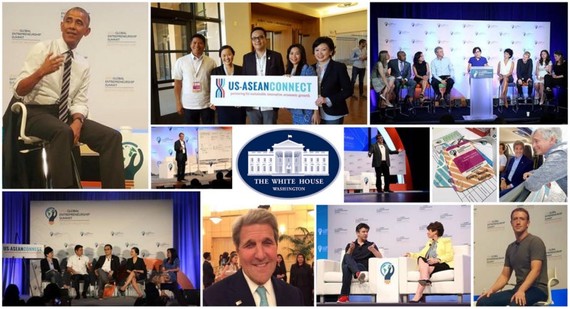These past few months have been an interesting time for me, with several events that coalesced together to create a stronger momentum for the Digital, Clean Technology and Economy to move forward, with the opportunity for the United States to lead it.
The first was an invitation from the White House to speak at President Barack Obama's Global Entrepreneurship Summit in Silicon Valley. The second was another invitation to meet with US Secretary of State John Kerry. Both events highlighted the need to leverage more on the best practices and lessons learned from the technology sector to advance digital and clean technology and digital economy globally for the betterment of all.
On a more local level, I also had the opportunity to moderate a panel on how California could achieve the state's greenhouse gas reductions with grid reform. As some may know, California has one of the most ambitious and progressive initiatives related to GHG emissions reductions and clean energy in the U.S. In accordance to the state's Assembly Bill 32 and Senate Bill 350, the state is required to reduce GHG emissions by 40% from 1990 levels, achieve a Renewable Portfolio Standard (RPS) of 50%, and increase energy efficiency/vehicle electrification targets, all by the year 2030.
What I noticed with these events is that there are a few connecting threads that would create the momentum for us to keep advancing digital and clean technology and economy forward.
1) We have to always remember that while we as an industry undergo this digital and clean technology transformation, society requires us to continue to deliver safe, reliable and affordable infrastructure to all. The digital and clean energy and infrastructure transformation ought to be done while keeping this tenet in mind. Yes, we do want to have more clean technology and reduce greenhouse gas emissions, but we have to transition it in a way that would preserve the safety, reliability and affordability of our energy sources and infrastructure.
2) For the most part, the technology works, but for the industry to really move forward, what are needed are innovations in business models. As digital energy is really the intersection of technology, business model and policy, the three have to coalesce to create the right environment for the industry to thrive. This requires true collaborations among the ecosystems of technology providers, consumers, policymakers and regulators.
3) Last, the digital and clean energy transformations have to make economic sense, both from business and societal perspectives. We have to be able to demonstrate that digital and clean energy initiatives create new revenue models and jobs that strengthen not only the digital economy, but the economy as a whole.
It's no secret that we see challenges when it comes to rebuilding and retrofitting our roads and bridges, and the same can be said for our energy infrastructure. We need to continue developing and implementing modern, digital technologies that support clean and distributed energy while at the same time preserving our energy reliability and security. Technology advancements provide us with the exceptional opportunity to work globally across the energy ecosystem to ensure energy systems are interoperable and future-proof. All the while, they can scale to meet the needs of almost any energy provider big or small. We must take advantage of this unique point in our energy history to make the right decisions, and investments, that will move our economy forward.

